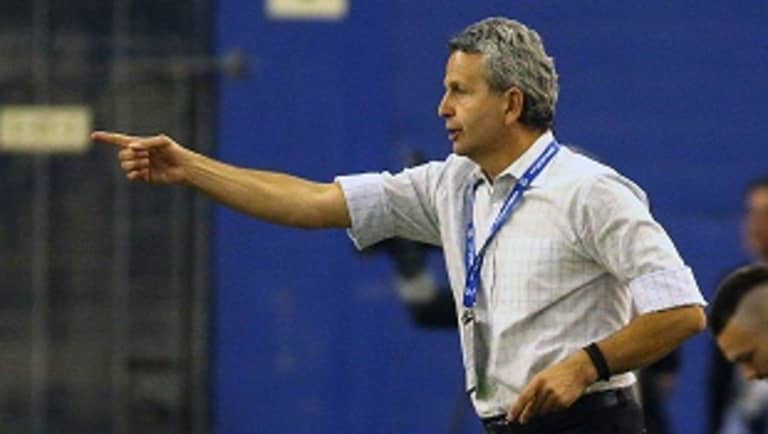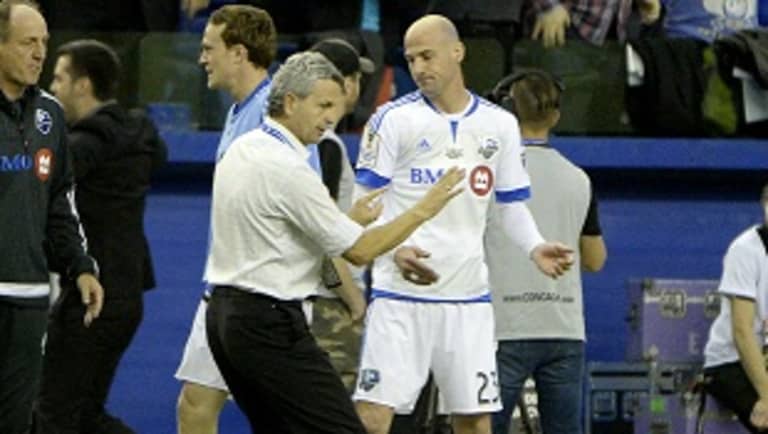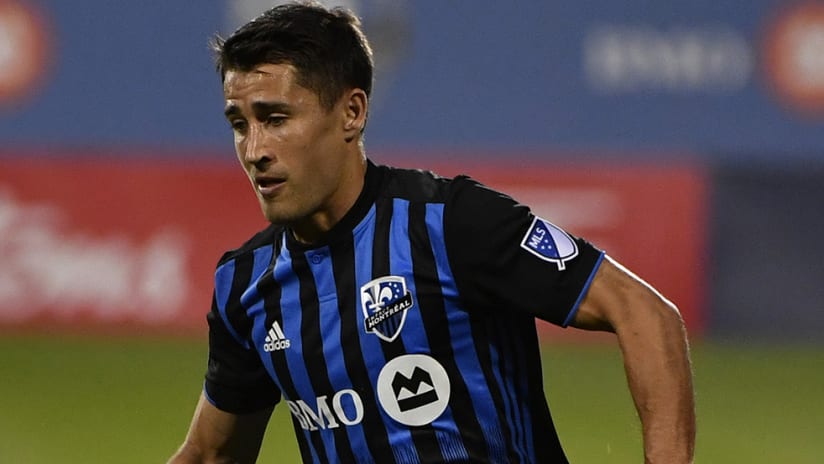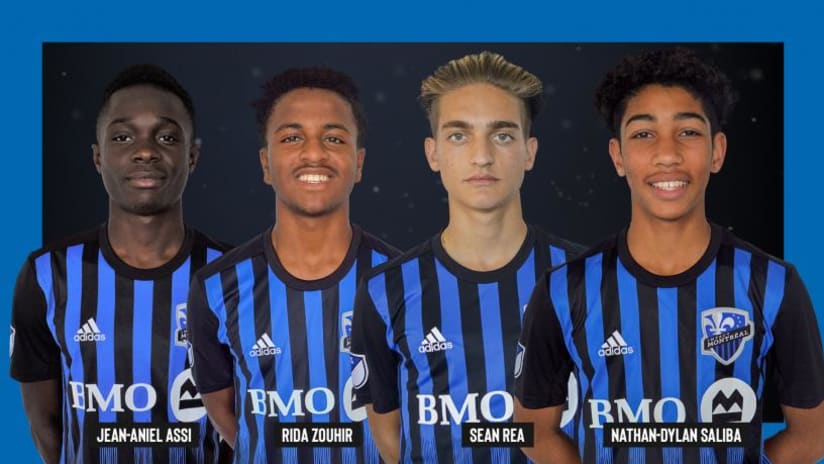MONTREAL – There’s always next year.
That’s been the familiar refrain from Major League Soccer clubs after every edition of the CONCACAF Champions League, all seven of which have been won by a Mexican team.
In the wake of the Impact’s historic but ultimately unsuccessful bid to end Liga MX’s so-far unblemished regional hegemony – a run that ended with a painful 4-2 home loss and 5-3 aggregate defeat to Club América on Wednesday night – the ensuing conversation, once again, revolves around on how MLS can get over the hump.
Montreal joined Real Salt Lake as the only two MLS teams to make the final in tournament history, but Impact midfielder Patrice Bernier admitted it’s clear there’s still ground to make up in order to take the next step.
“Champions League, like in Europe, is different from the league,” Bernier said. “We in MLS are a little bit like the English, playing an athletic, physical soccer. Those teams [in CCL] have a lot of technical qualities, even the smaller teams in Central America.
“We need to be adept technically, be good with the ball, because we pay for it when we don’t keep the ball enough. Mentally, you start making mistakes, you’re not as focused. We showed good things, but there’s a little something missing for us to be at the level of those teams. Technically, they’re spot-on, and that makes a difference in terms of execution in the end.”
Although the Impact’s counterattacking style and pragmatic approach saw them through to the final – the bonus of MLS’s schedule shuffling can’t be overlooked, either – the hard truth is that they won just one of six knockout games, facing 111 shots to 61 of their own while averaging only 37 percent of possession.
How did Montreal overcome the statistics? The Impact had the benefit – or misfortune, some might say – of being able to put all their eggs in the CCL basket beginning with that group stage last year all the way through to the knockout rounds this year, regularly playing their best lineups.
With their 2014 MLS campaign destined to end in playoff elimination by late summer, Klopas and his staff could afford to shift their full focus to CCL play during the group stage. While the New York Red Bulls battled to keep up in the MLS playoff race, fielding reserves against Montreal and CD FAS in the same group, the Impact held no one back.
The result was a spot in the knockout stages and high enough seeding that meant the second leg of their quarterfinal tie against Pachuca would be played at Olympic Stadium. Even with a 2-2 draw south of the border, Montreal still needed late heroics from Cameron Porter to advance to the semifinal, where they snuck by Alajuelense.
READ: Impact exit unbowed, but admit "it's tough to be so close to trophy"

Drastic schedule changes helped the knockout round run, but Impact head coach Frank Klopas had another suggestion for helping future entrants go deep: Reward clubs and players for taxing themselves on two fronts.
“MLS has come a long way,” Klopas said in his postgame press conference. “The quality with a lot of teams here, I think they can do extremely well [in CCL], but there’s got to be something for the players and the teams to shoot for. And I’m not talking about little things.
“These players here, they don’t make millions of dollars like the América players do. Put some real bonuses in there so the guys take it really seriously and focus on it. If they do, I think you’ll see MLS teams every year being in the position that we were.”
Belgian center back Laurent Ciman, a UEFA Champions and Europa League participant and World Cup veteran who started all six games in the knockout stage, had a straightforward observation after his first taste of the CCL.

“[Liga MX clubs are] used to playing these important games. Maybe MLS, not so much,” he said. “I just got here, so it’s new to me, but personally, from what I’ve seen from the Impact, it’s just about concentration and thoroughness.”
Neither seemed to be lacking in a first half on Wednesday that saw Montreal take a 1-0 lead that could have been doubled had Ignacio Piatti finished a golden chance.
That all changed in the second stanza, with a Dario Benedetto scissor kick emboldening the visitors before the Argentine and his forward mate Oribe Peralta finished things off to give América the title and the scoreline they always believed they deserved.
Their ingrained belief and the tradition behind it, according to Nigel Reo-Coker, makes all the difference.
”Obviously MLS is in its infancy still. It’s a growing league,” Reo-Coker said. “That league’s been going on for many, many years. It’s not just a sport to them, it’s a way of life. We’re still here trying to make that transition from people to understand it’s not just football, it’s a way of life. With that comes the quality.”
So how long will MLS have to wait to push Liga MX off the podium? Who knows, and it bears reminding the league’s clubs must find a way to consistently make the final first.
That day is coming, though. Even the man who unceremoniously snuffed out the Impact’s dreams believes so.
“MLS has to continue on the same path,” América head coach Gustavo Matosas said. “I think MLS has done progressive, intelligent and serious work. And above all, not acquiring players anymore who are retiring in other countries. It's bringing in young players who are good projects in their countries and this is why, sooner or later, MLS will win the CONCACAF Champions League.”






